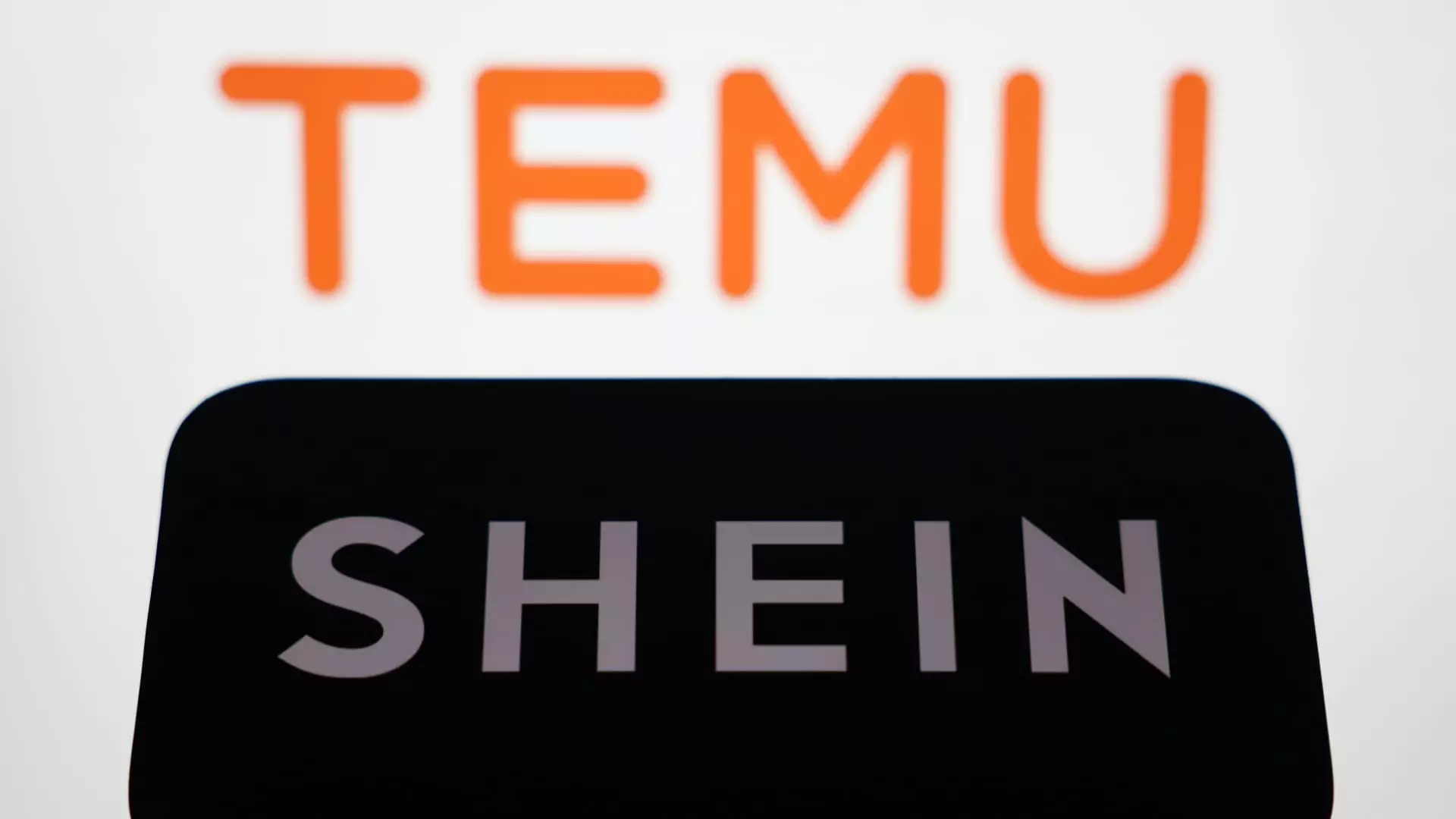In light of substantial obstacles in the United States, Temu and Shein, two prominent budget e-commerce brands originating from China, are pivoting their focus toward European markets. As they seek opportunities beyond the U.S., it is vital to discern whether this shift is a savvy maneuver or a desperate scramble. Recent developments indicate that their journey into Europe might be more fraught with challenges than they anticipated. With trade policies becoming increasingly hostile in the U.S.—and consumer spending dropping significantly—these companies appear to be looking at Europe as a potential lifeline.
However, this lifeline could be riddled with pitfalls. Recent complaints have emerged in the EU, accusing Temu and Shein of unethical business practices, which has placed them under the regulatory microscope. The European Union’s move to introduce a two-euro tariff on small packages—previously exempt from customs duties—serves as a warning sign for these e-commerce giants. Experts are suggesting that this fee is not just a minor adjustment but a strategic effort aimed at curbing the unchecked expansion of ultra-affordable cross-border commerce.
The Numbers Tell a Story: U.S. Decline versus EU Gains
Data from Consumer Edge Research has revealed a troubling trajectory for both companies within the U.S. market. In May, Temu saw a staggering 36% decrease in consumer spending compared to the previous year, while Shein experienced a lesser but concerning 13% drop. Notably, their former American customers are opting for more traditional retail options, including established department stores. This migration away from digital stores to physical outlets could suggest a significant shift in consumer trust and preference.
Interestingly, the narrative flips in Europe. Temu and Shein reported remarkable year-on-year growth in the EU, showcasing consumer spending increases of 63% and 38%, respectively, in comparison to previous years. The rapid acceptance of these brands across European markets highlights a paradox: while both companies face severe backlash in the U.S., their appeal in Europe continues to rise. Thus, the strategic expansion into the EU—characterized by increased digital advertising and enhanced warehouse capacities—seems not only essential but also potentially lucrative for the two companies.
Regulatory Headwinds: A Looming Challenge
Despite the positive spending trends in Europe, regulatory challenges loom large on the horizon. The EU enforces stricter laws around product safety, labor practices, and environmental responsibility than the U.S. does. Temu and Shein may be naive if they believe that lower prices alone will enable them to overcome these rigorous requirements. As public sentiment shifts and calls for transparency grow louder, both brands must prepare to shoulder the added costs of compliance with the evolving regulatory landscape.
Reports of an “anti-fast fashion” legislative push in France, reinventing how fast fashion is defined and penalized, suggests that Temu and Shein finding acceptance in the European market will not be a given. The enforcement of the Corporate Sustainability Due Diligence Directive, which mandates companies to scrutinize human rights abuses and environmental impacts in their supply chains, could potentially place additional burdens on their operations, effectively reshaping the core of their business models.
The Human Element: Ethical Implications at Play
Imminent regulatory pressures go hand-in-hand with ethical concerns regarding the labor practices of these e-commerce platforms. Advocacy groups have already raised alarms about the labor standards underpinning the success of Temu and Shein. Xiaomeng Lu from Eurasia Group mentioned that while these brands provide cost-effective solutions, their labor practices may clash with the ethical expectations of European consumers. This disconnect might not only thwart their business aspirations but also tarnish their reputations.
As the European consumer becomes increasingly aware of the ramifications of their purchasing choices, it is clear that both brands cannot afford to overlook the human rights narrative that forms an integral part of the discourse on sustainable fashion. The growing unwillingness to accept ‘cheap at all costs’ is indicative of a larger consumer movement aimed at backing products that uphold ethical standards.
Strategic Growth or Reckless Expansion?
As Temu and Shein invest heavily in advertising and operational expansions in Europe, one must ponder their long-term viability in light of mounting scrutiny. The current strategic shift appears opportunistic, yet the robust growth in these markets must be weighed against the backdrop of potential backlashes concerning compliance and ethical practices.
The companies may be at an inflection point where they need to transform their business models fundamentally. Their ability to adapt to not only financial but ethical implications will ultimately dictate their trajectory in these new markets. Will they treat Europe as a mere stopgap solution or invest genuinely in a sustainable business future? The unfolding narrative will inevitably shed light on whether this foreign market gamble turns out to be a calculated risk or a costly gamble.

